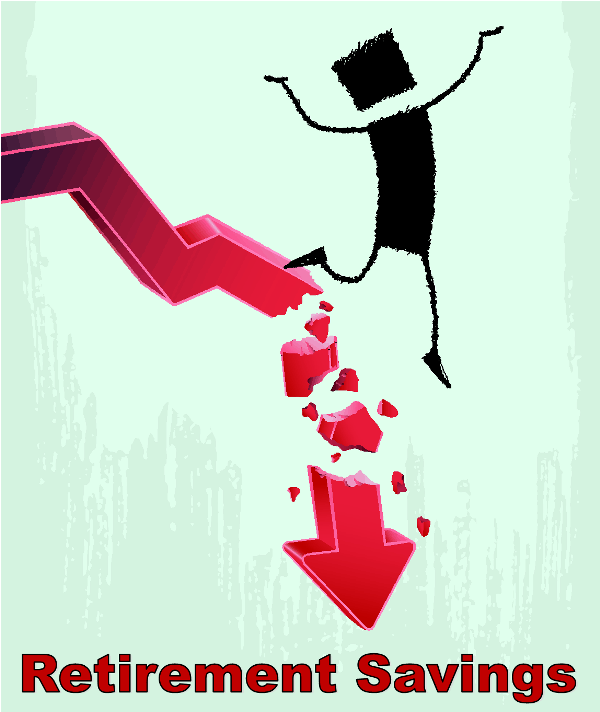Today might be a good day for a financial exercise…
Chances are if your retirement savings are in a 401K or countless other market-based products, you may have seen what the latest Wall Street downturn has done to your balance. If not, go ahead and bite the bullet and check it. After you get over the shock, check your Social Securitystatement. Take some solace in knowing that while your market savings have taken a hit, the good news is your estimated Social Security benefit today is the same it was on Wednesday.
downturn has done to your balance. If not, go ahead and bite the bullet and check it. After you get over the shock, check your Social Securitystatement. Take some solace in knowing that while your market savings have taken a hit, the good news is your estimated Social Security benefit today is the same it was on Wednesday.
That’s why Social Security exists. That’s why it works. That’s why it’s beyond reason that so many in the GOP still support sending your Social Security to Wall Street and destroying the stable income protection (it’s not an investment) Social Security provides.
“In June, presidential candidate Jeb Bush said that he thinks the next president will have to try to privatize Social Security. Others have gotten behind the idea as well: Sen. Rand Paul (R-KY) drafted a plan in 2013 that included partial privatization, and Sen. Ted Cruz (R-TX) is in favor of using private accounts. Rep. Paul Ryan (R-WI) has included privatization in his budget blueprints.
The market drop, and ones before, expose the dangers of such a plan, which usually entails diverting some or all of the money workers contribute to Social Security through their paychecks into private investment accounts.” Think Progress
Governor Mike Huckabee also prefers a privatized Social Security system but says he opposes benefit cuts. The problem is benefits would have to be cut to create private accounts. John Kasich has also supported privatizing Social Security.
No doubt, conservatives will remind us that over the long-term the market has been good to us. Maybe so, but as previous market collapses have shown, retirees don’t have the benefit of the long-term to rebuild savings now lost.
“Look at successive 45-year periods, as I did for my 2005 book, “The Plot Against Social Security,” and you find huge variability. The average worker who invested $1,000 every year in the stock market starting at age 20 in 1954 would have $470,000 when he or she was ready to retire in 1998. But the worker who started just five years later, in 1959, would end up with only $234,000 at age 65–half as much–despite investing exactly the same sum over the same time span.
Market crashes could destroy a nest egg that took a lifetime to nurture. A near-retiree with, say, a half-million in stock in 2007 had just over $300,000 a year later, following a 37.22% plunge in 2008. Those who held fast managed to recover their losses, but that took five and a half years–and what about those who didn’t have the luxury of time?”…Michael Hiltzik, Los Angeles Times
Trading Social Security’s guaranteed benefit for a ride on Wall Street makes no sense for Americans who need to be secure in their retirement. That’s true whether the market is up or down.


